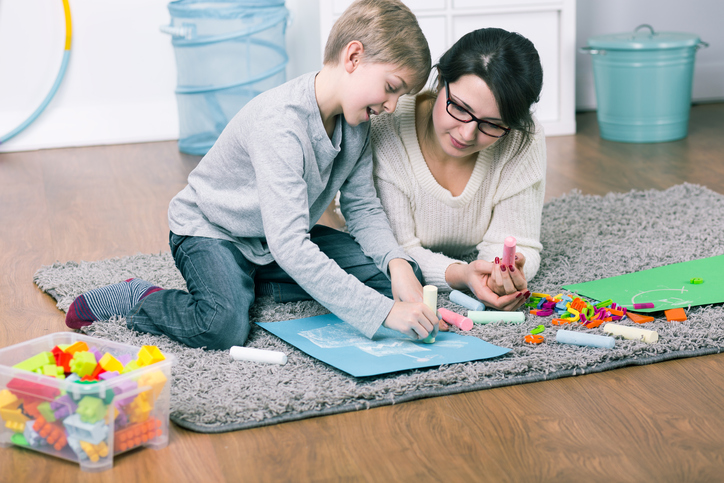What Your Therapist Wished You Knew
Winter and Spring always bring an increase of patients into our office for therapy or an evaluation (usually the combination of both). Many of our patients are not talking yet or they are not talking enough. Some of our children have difficulty reading. Some have difficulty with comprehension. Other children have difficulty producing sounds so it may be difficult to understand what they are saying. There are many reasons why parents bring their children into our office. In theory, the parent and the therapist should be a team. But because of past experiences and disappointments, fears and stress (from both parties)—often it can feel like the therapist and parent are not on the same team anymore—it can feel like the total opposite. It can start to feel like we are against each other. So today instead of giving suggestions-I want you give you a list of things that your therapist wished you knew. Although this is my opinion-I know many, many therapists from all disciplines: Speech and Language, Occupational, Physical, Music, Behavior, and Mental Health—I am speaking for them too.
1. We love your child-The reason we got into this field was to help children—not to make money—but to make a difference in the lives of children.
2. We want you to come into the therapy room when we treat your child. We want you to see what we are doing so you can carry it over at home. But when you are there-we don’t want you on your cell phone texting or taking calls. We want you engaged. On the other hand we don’t want you to take over the session or provide an exit route for your child to get out of completing the therapy tasks.
3. We want you to be consistent and on time in coming to therapy sessions. Whether the session is at home or in an office-we want you to come REGULARLY. There will be no progress if you don’t come. When it comes to therapy—consistency is the key.
4. Complete the homework or practice work at home. In most cases your child will see their therapist once or twice a week for 30-60 minutes. That is only 1-2 hours per week. Our most successful cases are the ones that do the practice work at home. We understand that after school or life in general is so busy for you—but this is important— it’s really important.
5. Don’t bring other children into the therapy session (unless requested). Many time brothers, sisters, cousins can be more of a distraction that it can be a help. So if that means you have to stay in the waiting room with your children-then that is probably best.
6. Pay your bill- Even though we are not in it for the money-we need to pay our bills too. If you are having trouble paying—we understand but talk to us don’t just stop returning phone calls or stop bringing your child to therapy. Let’s work something out.
7. Call us if you are not going to make it. Really is there anything else to say?
8. Ask us questions. We want you to. No question is dumb-especially when it comes to your child.
9. Give it some time. It takes usually about 2-3 months of consistent therapy (and home practice) to see progress. Give it time.
10. Know that therapy may not look like what you think it will look like—but we have a reason. Many parents expect their two or three year old to sit at a desk and complete flashcards. Some parents have even asked us “so when will you start doing the real therapy.” For many if us—especially if your child is young-play based therapy is the best therapy. They have the rest of their young lives to sit at a desk. We want learning and progress to be fun!
11. Talk to us. If you are concerned-talk to us. If your life is changing-talk to us. If you think your child needs something different or someone different-talk to us. Many times the parent will yell and scream because they have let frustrations build. Don’t let it get to that point. But if you are feeling angry—wait until you have calmed down because once you scream at a therapist—there really is no coming back from that. It usually means the end of your relationship. Once the trust is gone on either end, the therapists’ or yours, the progress may stop. And once progress stops then it is probably time to move on.
12. If we discontinue therapy it is not personal. Just because we discontinue therapy for what ever reason (insurance coverage, your child has plateaued, we think another therapist can take him further etc), it does not mean that we do not care or we don’t love your child. It usually means the opposite—we want to see them get as far as they can.
13. We love your child. I know I started with that—but we do, we really do. We only want what is best for you both. We want to see progress and we want them to live the best lives they can. We know you want that too.
“Teamwork makes the dream work” a great man once said. Let’s work together for the good of your little one. Because in the end—it is what we both want. When you read this, I hope you hear my heart. I wrote this not to be mean or because I am angry but I want you to know where I am coming from. It is a good place; a place of love. Today when you see your little one give them an extra hug and a kiss from us—because we mean it.















Leave A Comment
You must be logged in to post a comment.